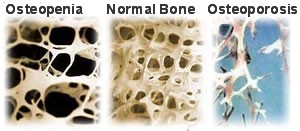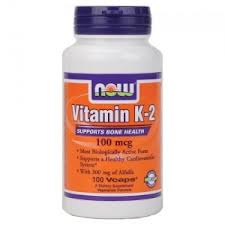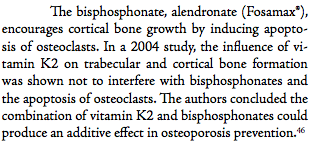Reverse Low Bone Density aka Osteopenia Leads To Height Increase In Older Women
 I’ve received messages from multiple women and found stories of older women who noticed that their height increased even when they happened to be middle aged. The best example of this happening was the case of where a women in her 40s started to take versions of Vitamin K2 aka Menaquinone and noticed that she gained about 3-4 cm increase in height. Refer to the older post “Increase Height And Grow Taller Using Vitamin K2 aka Menaquinone (Important!)”
I’ve received messages from multiple women and found stories of older women who noticed that their height increased even when they happened to be middle aged. The best example of this happening was the case of where a women in her 40s started to take versions of Vitamin K2 aka Menaquinone and noticed that she gained about 3-4 cm increase in height. Refer to the older post “Increase Height And Grow Taller Using Vitamin K2 aka Menaquinone (Important!)”
 Most people have probably not heard of Vitamin K2, but they have heard of Vitamin D, which is often combined with Calcium as a type of commonly sold supplement in any drug store. The Cal+VitD combination is something that is supposed to help increase the bone density and is often advertised on complete vitamin pills for women, like Centrum for Women. We however felt that the supplement is more likely to have negative side effects than increased bone density. I remember watching this video done by a promotor of the Anti-Aging movement who stated that the primary cause for the reduced function in the organ systems is from build up of calcium in various areas, from the arteries (causing strokes and heart attack) to the cartilage (which calcify).
Most people have probably not heard of Vitamin K2, but they have heard of Vitamin D, which is often combined with Calcium as a type of commonly sold supplement in any drug store. The Cal+VitD combination is something that is supposed to help increase the bone density and is often advertised on complete vitamin pills for women, like Centrum for Women. We however felt that the supplement is more likely to have negative side effects than increased bone density. I remember watching this video done by a promotor of the Anti-Aging movement who stated that the primary cause for the reduced function in the organ systems is from build up of calcium in various areas, from the arteries (causing strokes and heart attack) to the cartilage (which calcify).
Even if it turns out to be true that the Vitamin D which comes with the Calcium pills might have some positive effect on bone density, there is no correlation between its intake and increased bone longitudinal growth or bone lengthening. Our thoughts right now is that swallowing more calcium may not be the smartest move one can take, especially for people trying in increase their height.
The fact is that the conventional wisdom among professional medical experts seems to be that Vitamin D (The normal type) actually has an adverse effect on growth in children, at least in high dosages taken orally. However, it seems that at least 1 study (High-dose vitamin D supplements are not associated with linear growth in a large Finnish cohort.) it was proven wrong. High Vitamin D intake has no correlation, positively or negatively to growth, to growth, not even in children and infants.
So let’s move away from the idea that is believed by the general public, but move towards the other Vitamin, K2. We suspect that Vitamin K2 may be a much better option.
Some background information on Vitamin K2
There are actually a total of 3 different types of Vitamin Ks. You have Vitamin K1, K2, and K3. They are known by the names of phylloquinone , menaquinones , and menadione respectively. Within the subcategory of the K2, it is further divided into 4 types of K2. They are known as MK4 (the most well known), MK7, MK8, and MK9.
- MK4 aka Menatetrenone
- MK7 aka Menaquinone-7
- MK8 aka Menaquinone-8
- MK9 aka Menaquinone-9
The compounds are very similar to each other. From Basic Organic Chemistry, all of the following compounds have a type of structure known as the “quinone ring”. The number associated represents how long is the carbon side chain (based from its Wikipedia article)
Based on a few Pubmed studies we’ve found, it seems that MK7 seems to have a positive effect on the bone density in aged females and also decreases the loss of height. We quote the following passage “….significantly decreased the loss in vertebral height of the lower thoracic region at the mid-site of the vertebrae“. The lumbar spine and femoral head showed an increase in bone mineral content and bone mineral density.
- (Study: Three-year low-dose menaquinone-7 supplementation helps decrease bone loss in healthy postmenopausal women)
- Study: Vitamin K2 (menatetrenone) effectively prevents fractures and sustains lumbar bone mineral density in osteoporosis.
- Study: Effects of vitamin K2 on osteoporosis.
 There is another compound known as Alendronate which is sold under the commercial title Fosamax, has some effect on the osteoclasts from eating away the bone structure. They act as a type of specific inhibitor of osteoclastmediated bone resorption. This idea of combining Vitamin K2 and with Fosamax is something which we will bring up in future posts.
There is another compound known as Alendronate which is sold under the commercial title Fosamax, has some effect on the osteoclasts from eating away the bone structure. They act as a type of specific inhibitor of osteoclastmediated bone resorption. This idea of combining Vitamin K2 and with Fosamax is something which we will bring up in future posts.
However, We do find out that Vitamin K1 (NOT Vitamin K2) does NOT seems to help prevent the decrease in bone mineral density for women over a long time range, at least at the 5 mg a day dosage (Study: “Vitamin K supplementation in postmenopausal women with osteopenia (ECKO trial): a randomized controlled trial.“)
Some cultural references to the use of Vitamin K2
For the longest time, the ancient indian medical practice of ayurveda has proposed that taking Vitamin K2 or the types of foods which contain Vitamin K2 is supposed to decalcify the pineal gland. We know the pineal gland as the small gland that is supposed to regulate sleep.
Besides just India, it was found that in Japan, the fermented soybean based food called Natto contains a lot of K2. That seems to help with bone density levels and prevent hip and femoral neck fractures in older Japanese females.
So what do all the studies which show that MK4 and MK7 have bone density enhancing properties prove?
It gives just more evidence in validating this unique story of the middle aged woman who noticed her height increasing over 1 inch after taking MK7 to stop osteopenia.
We suspect that the same bone physiological process has happened to the women who start the reddit thread/story below.
She would increase in height by 1 inch between the age of 21 and 24.
(We are fully ware however that her assessment that she did not menstruate (aka release excess estrogen) would go completely against our hypothesis though. That would suggest that the mechanism on how she grew is due to a completely difference process than what we are proposing. Her inability to have a regular period cycle and menstruate for 12 whole years (while already at the height of 6′ 0″ at 21) suggest that her cartilage did not get the last rush of estrogen release to fully ossify the last bit of epiphyseal cartilage left in her system. teenager symptoms of extreme thinness and ectomorphic body type suggest that she had anorexia causing the last wave of estrogen to be inhibited.)
The main thing is that she went from thin and low bone density aka osteopenia to increased bone density, getting her periods regularly, and normal/balanced hormone release. She never stated what helped her get the balance of her hormones back in order. We suspect that she probably took Vitamin K2.
If we are wrong about the physiological cause for her ability to increase in height in her mid-20s, we would still suggest however that Vitamin K2, which has the ability to reverse low bone density aka osteopenia, would still lead a small percentage of women who have no more growth plates to increase in height. Somehow having a low BMD seems to cause the cortical bone layer to be weak enough to be deformed enough to increase bone volume.
We found almost no studies in Pubmed showing that Vitamin K2 has any type of effect like decalcification of hyaline cartilage, but we hypothesize that it does.
- It has already been proven to decalcify the heart vessels aka arteries, decreasing the rate of heart attack and stroke.
- It has been speculated to decalcify the pineal gland by Aryuvedic medicine.
- So why isn’t it possible that K2 in some form, either MK4 or MK7, might have have the ability to decalcify calcium buildup in the cartilage tissues?
 This would suggest that it might renew the ECM structure of hyaline cartilage which gives them elasticity. If our hypothesis can be validated, maybe high intake of Vitamin K2 can result in micro-growth plates and cartilage embedded into the Bone ECM.
This would suggest that it might renew the ECM structure of hyaline cartilage which gives them elasticity. If our hypothesis can be validated, maybe high intake of Vitamin K2 can result in micro-growth plates and cartilage embedded into the Bone ECM.
From one source, we found the dosage to be around 45 mg/day, which is what is recommended for women suffering from osteoporosis.

